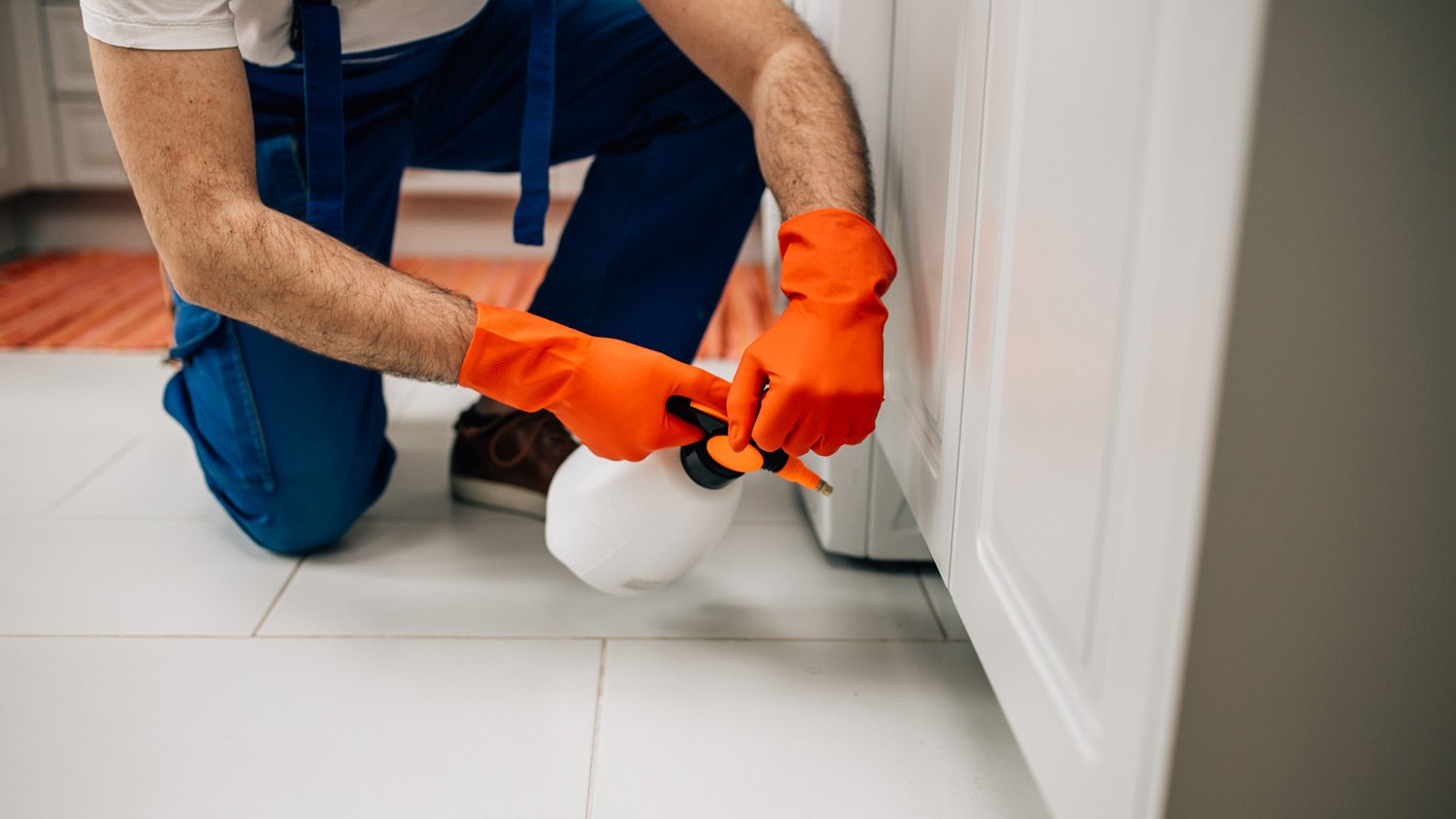6 Easy Ways to Save Money on Pest Control
Keep bugs at bay without straining your wallet


Saving money on pest control can be simple.
Take preventative measures to keep pests from showing up in the first place.
Get multiple quotes and compare.
Immediately deal with any pests you see.
Do some light pest treatment yourself.
Pest control is never fun: Having this task on your plate likely means you've got some unwelcome guests in your home, and you may be worried about how much kicking them out will cost you.
Regardless of what it costs, you've got to take on pest control quickly to avoid pests taking over your home. But you can do a few things to trim the cost of evicting them. Here are a few methods you can use.
1. Take Preventative Measures
The best way to save money on pest control is to prevent pests from infesting your home in the first place. Taking a few simple preventative measures before you even see a fly can save you in the long run.
First, keep food stored in airtight containers so it doesn't attract pests. Don't leave standing water in your yard or in your home, as this can also attract bugs. You should also dispose of your garbage regularly and keep it under a closed lid. Aim to keep your home tidy, not only for your sake, but so bugs don't have a place to nest and feed. Seal off cracks and other openings where insects and other critters could get in.
Once you’ve tackled some basic precautions, learn to spot the signs of pests starting to move in so you can stop them early. You may see a few flies and ants here and there when you’re cooking something sweet. Or, even worse, you may notice a couple of mouse droppings underneath the fridge. Once that happens, it's time to bring in a local pest control pro for a thorough inspection.
2. Take Care of the Problem Quickly

Pests lead to more pests, so if you notice a problem, you're going to want to act quickly. First, you have one or two roaches, and then pretty soon, they're everywhere. Then, instead of one localized treatment, you need your whole house fumigated, which is going to cost you a lot more money.
As soon as you notice signs of pests, call a professional for an inspection. The inspection alone could save you a lot of money if you do it at the right time.
3. Do Some Small Tasks Yourself
If the problem isn’t too serious, you might be able to do this job yourself. If you’ve noticed a few insects crawling around on the kitchen floor, try spraying in areas where they seem to come from and setting up a few traps. Or, if you notice a mouse every few months, check the area where they seem to flee for holes that you might be able to seal up.
After taking these steps, be sure to monitor for any other pests, and be sure to call in a pro if things get worse.
Use caution here, though. Never try to tackle pests that could hurt you (like wasps) on your own, and don’t try to DIY away an active infestation. Sure, you can handle a few ants at your picnic, but putting off treating a whole swarm of them will end up costing you more in the long run.
4. Live With Some Harmless Critters
Not all perceived pests are actually pests. Spiders, house centipedes, green lacewings, and pseudoscorpions may all be "icky," but they're harmless and take care of actual pests, like bugs that can spread diseases or cause damage. Do your research and see which ones actually need to go. If you can live with them, some of them can even act as your own personal pest control. And they don't charge you any money either.
Again, this isn’t to say you should ignore any active infestations, but especially if you live near a body of water or some woods, a few harmless critters may be par for the course.
5. Get Multiple Quotes
If you’ve never hired a pest control pro before, or even if you have, it can be hard to know what you’ll end up paying. The cost of full-service pest control is about $200 to $600 on average (you may pay up to $8,000 for termite fumigation, but that just shows why it's good to deal with it early).
Contact a few pest control companies for a consultation and a quote, and then compare their prices and services. This work will ensure you're getting the best price possible.
6. Go Through With the Whole Treatment
Some critters need a few different treatments so you can fully bid them adieu. And while this process might end up being a bit more involved than you expected, it’s important to go through all the steps that your pro recommends. These treatments often ensure that the specific pests, and any eggs or droppings, are wiped out. They can also help prevent pests like termites from returning.
Cutting things short may help you save right now, and you should absolutely shop around to be sure all treatments are necessary. However, ultimately, full treatments can save you money and a big headache in the future.





- Pest Control Services
- Ant Exterminators
- Mosquito Control Companies
- Rodent Control
- Termite Control
- Bee Removal
- Animal Control
- Bed Bug Control
- Pest Inspection
- Flea Control
- Raccoon Control
- Skunk Control
- Spider Control
- Cockroach Control
- Bird Control
- Bat Control
- Opossum Control
- Snake Control
- Groundhog Removal
- 24 Hour Pest Control Services
- Bug Control
- Fumigation Companies
- Termite Tenting
- Lawn Pest Control Services










